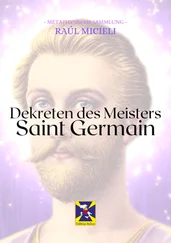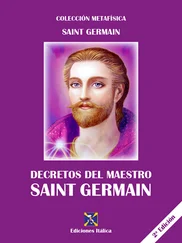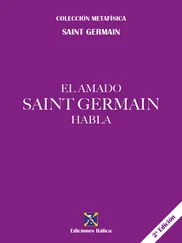Sylvie Germain - Magnus
Здесь есть возможность читать онлайн «Sylvie Germain - Magnus» весь текст электронной книги совершенно бесплатно (целиком полную версию без сокращений). В некоторых случаях можно слушать аудио, скачать через торрент в формате fb2 и присутствует краткое содержание. Год выпуска: 2008, Издательство: Dedalus Ltd, Жанр: Современная проза, на английском языке. Описание произведения, (предисловие) а так же отзывы посетителей доступны на портале библиотеки ЛибКат.
- Название:Magnus
- Автор:
- Издательство:Dedalus Ltd
- Жанр:
- Год:2008
- ISBN:нет данных
- Рейтинг книги:3 / 5. Голосов: 1
-
Избранное:Добавить в избранное
- Отзывы:
-
Ваша оценка:
- 60
- 1
- 2
- 3
- 4
- 5
Magnus: краткое содержание, описание и аннотация
Предлагаем к чтению аннотацию, описание, краткое содержание или предисловие (зависит от того, что написал сам автор книги «Magnus»). Если вы не нашли необходимую информацию о книге — напишите в комментариях, мы постараемся отыскать её.
Magnus — читать онлайн бесплатно полную книгу (весь текст) целиком
Ниже представлен текст книги, разбитый по страницам. Система сохранения места последней прочитанной страницы, позволяет с удобством читать онлайн бесплатно книгу «Magnus», без необходимости каждый раз заново искать на чём Вы остановились. Поставьте закладку, и сможете в любой момент перейти на страницу, на которой закончили чтение.
Интервал:
Закладка:
Hearing this, the boy realizes without being able to explain it to himself that his mother had just said her goodbyes, and that any attempt to persuade her to go with them, or to delay or indeed cancel this sudden departure with an uncle who has turned up like some rabbit produced out of a magician’s hat, would be pointless. A final goodbye. Having brought him back into the world when he was little by the power of her story-telling, she is now driving him off with the harshness of a few words.
Note
The Schmalker family:
Wilhelm Peter Schmalker, born 1877 in Berlin. Professor of medicine. In 1902 marries Friedericke Maria Hinkel, born 1884 in Zwinkau. Both died in 1945.
Five children were born of this marriage:
• Lothar Benedikt: born 3/5/1904. Pastor. In 1931 marries Hannelore Storm. In 1938 emigrates to England with his wife and their two daughters.
• Paula Maria: 7/2/1905–11/2/1905.
• Thea Paula: born 21/12/1905. In 1927 marries Clemens Dunkeltal (died in 1948 or 1949?). Died in September 1950.
• Franz Johann and Georg Felix: born 18/8/1921. Members of Hitler Youth. Enlisted in the Waffen-SS, took part in several battles. Both died at Stalingrad, in November 1942, within three days of each other.
Fragment 8
Lothar explains to his nephew it would be better if he gave up the surname Dunkeltal that could be damaging to him. He suggests adopting the name of Schmalker, which would more firmly root him in his mother’s family with whom he has now been offered a home. And he also suggests choosing another first name, Felix, for instance, an attractive word combining the idea of fruitfulness with that of good fortune. He has had his share of tribulations. It is time for him to start a new life, with a new name meaning ‘happy’.
But there is nothing new or cheerful about this name. It was given to Georg as a second name — the boy has a detailed biographical knowledge of his young uncles. It does not much matter that the name did not appear on any official documents and might perhaps never have been spoken, it has nevertheless already been given to a member of the Schmalker family and is therefore fraught with gloomy associations. Franz-Georg points out this detail to Lothar who seems unaware of it, unless he is only pretending. Lothar lets the remark pass, and leaves his nephew free in the end to choose whatever first name he likes. To Franz-Georg this second supplanting of his identity that is being urged on him feels like an assault, and he thinks of his father who juggled with various names and ended up dying as someone called Felipe Gomez Herrera. Grown-ups are truly incomprehensible, and sometimes terribly annoying. After long and glum reflection, he finally opts for a first name of universal currency — mankind’s first name, Adam. Lothar congratulated him on this choice.
His aunt Hannelore shows no particular feeling towards this young intruder who has escaped the downfall of Nazi Germany where at last, thanks be to God, the Dunkeltal couple have come to grief. She observes this undesirable nephew with circumspect and keen attention, anxious to discern what he thinks of everything that has happened, to what extent he has been influenced by his parents. But she refrains from questioning him or even alluding to Clemens’ sorry end and Thea’s wretched demise, her death coming a few weeks after her son’s departure. Hannelore feels a mixture of pity and wariness towards this adolescent orphan who has lost both parents, his country and his name. She doubts it is enough to give a boy of nearly thirteen a new identity, and to drop him into an environment radically different from the one he has always known, in order to cleanse him of the horrors of History with which he has grown up and to console him in his twofold bereavement.
But Adam, silently echoing Hannelore, lets nothing of his own feelings show and never refers to his recent past. The two of them remain on their guard, with questions and things unspoken lying heavy on their hearts.
Yet as the days go by Adam discovers the dark side of the Schmalker family and by extension the hidden face of the Reich that his mother celebrated and his father served with zealous self-abasement. It is Lothar who gradually informs him of the facts, amazed to observe to what extent the child has been kept in ignorance of almost everything, and also how complicit he has been in this false naivety, even if he can guess the reason for it. The time for children’s stories is over. Like it or not, Adam has grown up and cannot continue to take refuge in the childhood coziness of not knowing for fear of having to confront the truth.
Reality then finally catches up with him, in a foreign city, in the midst of an emigrant family deeply afflicted by the insane cruelty that has raged in their country of origin and with which some of their own members have collaborated. And he learns the reasons that gradually led Lothar and Hannelore to flee Germany, taken hostage by Hitler.
One and half years younger than Lothar, Thea had been very close to her older brother until she met Clemens Dunkeltal, a medical student at the university where their father was teaching. The romantic Thea had fallen hopelessly in love with this brilliant scholar who had had to decide between medicine and singing, for which he was clearly talented. As for Clemens, he was primarily flattered by the opportunity to become part of Professor Schmalker’s family. The year 1928 was a memorable one for him: he became the son-in-law of an eminent professor and acquired his membership card of the German Workers’ National-Socialist Party, led by his mentor Hitler. Thea’s parents, of old conservative middle-class stock, nostalgic for the days of Empire and hostile to the Weimar Republic, at first regarded their son-in-law’s nationalist fevour with indulgence, and even a touch of pride. Thea herself unreservedly approved of everything her husband said and did. As for the twins Franz and Georg, still little boys at that time, they soon looked up to this martial man with naive and enthusiastic admiration. That left Lothar, the eldest son, whose interest in theology and ethical questions was somewhat at odds with the barbarous political creed belched forth by the author of Mein Kampf , which Clemens had warmly recommended to him. His relations with his brother-in-law very rapidly deteriorated, any discussion between them degenerating into an argument, which upset his parents and infuriated Thea. Thus the closeness there had been between the two eldest children of the Schmalker family came to an end.
The discord between them became even more acrimonious when Lothar brought home his fiancée of non-Aryan origin. Hannelore belonged to a Jewish family who came from Bohemia and converted to Protestantism when they moved to Berlin in 1898. Animosities intensified in 1933 when the Nazi regime tried to curb the country’s churches, both Catholic and Protestant, and forced the Lutheran churches to form a united ‘German Church’ from which all non-Aryans were excluded. A resistance movement immediately started to gather round several strong personalities, Pastors Martin Niemöller, Otto Dibelius and Dietrich Bonhoeffer, giving rise to the ‘Confessing Church’ and to the organization of clandestine seminaries. Lothar, who had met Dietrich Bonhoeffer in 1925 while studying theology at Berlin university, joined the ranks of the opposition in January 1934. His becoming a member of the Confessing Church — the only authentic one because it preserved the freedom of the Church and respected the real values of Christian spirituality, flouted by the idolatrous and criminal German pseudo-Church that owed its allegiance to the regime — made definitive the rupture with his sister and brother-in-law. Lothar’s deliberate separation of himself from his family came as a relief to Clemens who was very much put out by this seditious relative, attached to his Bible like a donkey tethered to its post, and to cap it all married to a Jew.
Читать дальшеИнтервал:
Закладка:
Похожие книги на «Magnus»
Представляем Вашему вниманию похожие книги на «Magnus» списком для выбора. Мы отобрали схожую по названию и смыслу литературу в надежде предоставить читателям больше вариантов отыскать новые, интересные, ещё непрочитанные произведения.
Обсуждение, отзывы о книге «Magnus» и просто собственные мнения читателей. Оставьте ваши комментарии, напишите, что Вы думаете о произведении, его смысле или главных героях. Укажите что конкретно понравилось, а что нет, и почему Вы так считаете.












